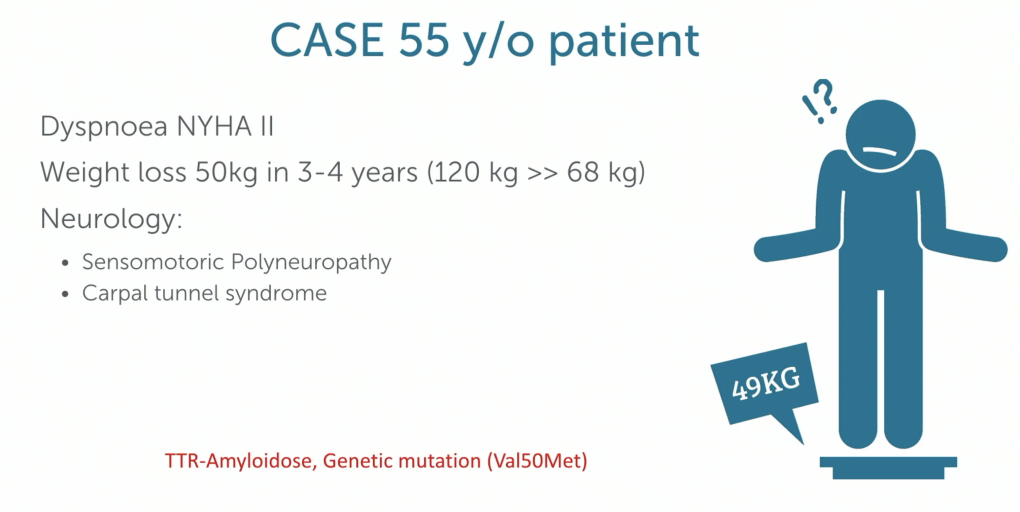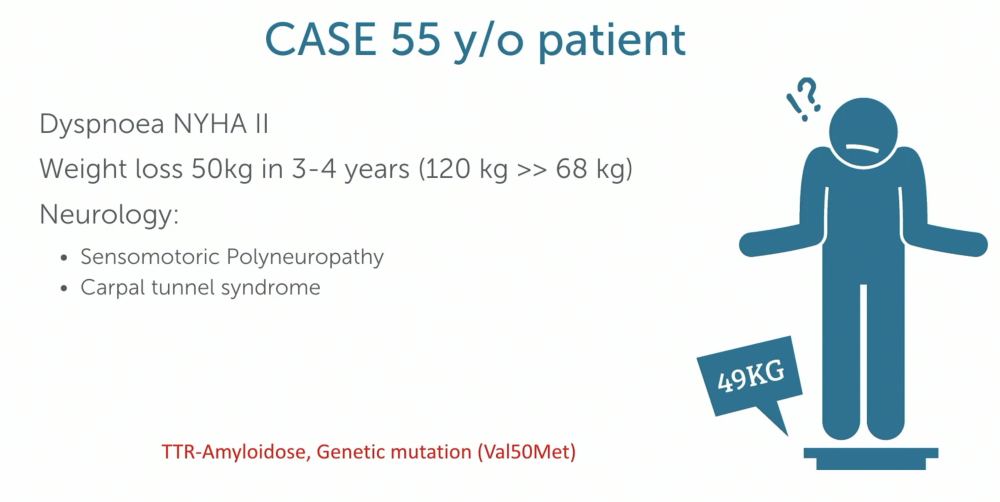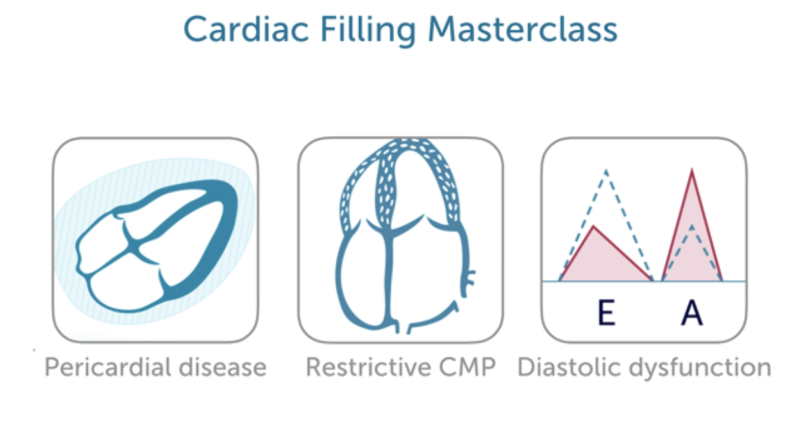Cardiac Filling MasterClass Case
Did you know that Amyloid Heart Disease is not a rare condition?
Research has shown that amyloid heart disease is more common than we previously thought. Echocardiography is the most crucial imaging technique to screen for amyloid heart disease. It is safe, noninvasive, widely available, and well-suited to visualize the typical features of the disease.
Cardiac amyloidosis (also called "stiff heart syndrome") is caused by amyloid deposits in the extracellular space of the heart muscle. This leads to impairment of systolic and diastolic cardiac function. In addition, amyloid heart disease also impacts atrial function, affects the conduction system, and can cause valvular heart disease (specifically aortic stenosis).
Amyloidosis – a systemic disease
Extracardiac manifestations most commonly include the kidneys and the nervous system. Therefore, checking renal function and other laboratory parameters, such as NT-pro-BNP, is essential.
Tip: Think of Amyloid heart disease if one or more of the following findings are present:
- History of carpal tunnel syndrome
- Signs of polyneuropathy
- Unexplained left ventricular hypertrophy
- Lymphoma
What does the echocardiogram show?
Here is the echo study of a patient with the typical features of amyloid heart disease:
In summary, here are some of the "red flags" on ultrasound that are typical for amyloidosis:
- Increased wall thickness (with sparkling appearance)
- Apical sparing in Speckle Tracking Echocardiography
- Diastolic dysfunction /restrictive physiology
- Pericardial effusion
But there is much more to know about cardiac amyloidosis! Find out in our Cardiac Filling MasterClass!
- What are the different types of amyloidosis?
- How do they differ in their patterns of systemic involvement?
- What is the pathophysiology behind cardiac amyloidosis?
- How can it be diagnosed and differentiated from other forms of (restrictive) cardiomyopathy?
- Which echo parameters do we have to assess when amyloid heart disease is suspected?
These are just a few questions that we will answer in this course!
Maximize your knowledge about pericardial disease, restrictive cardiomyopathy, and diastolic dysfunction with our Cardiac Filling MasterClass!
We hope you enjoyed this case. If you are interested in the Cardiac Filling MasterClass, make sure to sign up for our free lectures!
Yours,
Thomas Binder and the 123sonography team





